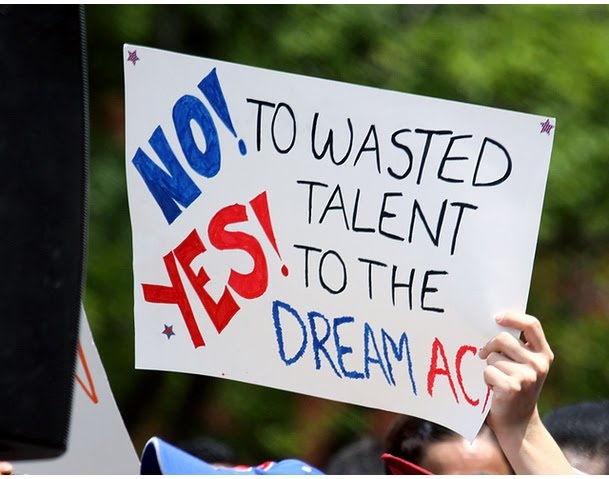How will Obama's immigration decision play in the South?

President Obama's decision last Friday to halt the deportation of some 800,000 undocumented people who came to the U.S. as children has sent shockwaves not only through immigrant communities, but also the 2012 political debate.
A poll by the firm Latino Decisions shortly after the decision found Latinos in battleground states embraced Obama's announcement. The survey of Latino registered voters in Arizona, Colorado, Florida, Nevada and Virginia found 49 percent saying it made them "more enthusiastic" about Obama's 2012 candidacy.
That was a big turn-around for Obama among Latino voters. The Obama administration had stepped up deportations of undocumented immigrants, driving the number up to 1.2 million between 2009 and 2012. A Latino Decisions poll in early 2012 found 41 percent of registered Latinos saying this made them less enthusiastic about voting for Obama, with 31 percent saying it had no effect.
It also stands in sharp contrast to Latino views of presidential hopeful Mitt Romney's immigration positions. In the heated Republican primary, Romney took a swerve to the right in his immigration policy, pledging to veto the Dream Act as part of a get-tough platform.
This boost in enthusiasm could be important in Southern states, which have seen the highest Latino growth anywhere in the country. Latino Decisions found only a 10 percent enthusiasm rate among Latino voters for these positions.
Will the boost in Latino support help Obama in November 2012? And what about Southern states, which have seen the fastest growth in people identifying as Hispanic in the country?
Consider three Southern battleground states: Florida, North Carolina and Virginia. All three have seen big gains in Latinos, and Latino voters, over the last decade. Together, the three states have an estimated 2.5 million eligible Latino voters. The Latino share of the electorate currently ranges from 2.6 percent in N.C. to nearly 15 percent in Florida, as the following chart shows:

How that will play out in November is less clear. For one, there remains a strong registration gap among Latinos: Among eligible voters, Hispanics have among the lowest registration rates of any group.
Latinos as a group also tend to be younger, and turnout among young citizens is lower than among older age groups. In 2008 youth turnout soared in states like North Carolina thanks to high enthusiasm about the Obama candidacy and massive voter registration and turnout efforts.
Will the enthusiasm of Latino voters carry through into November? And will there be the same investment in registration and turnout to capitalize on it in key Southern states? Stay tuned.
Tags
Chris Kromm
Chris Kromm is executive director of the Institute for Southern Studies and publisher of the Institute's online magazine, Facing South.
